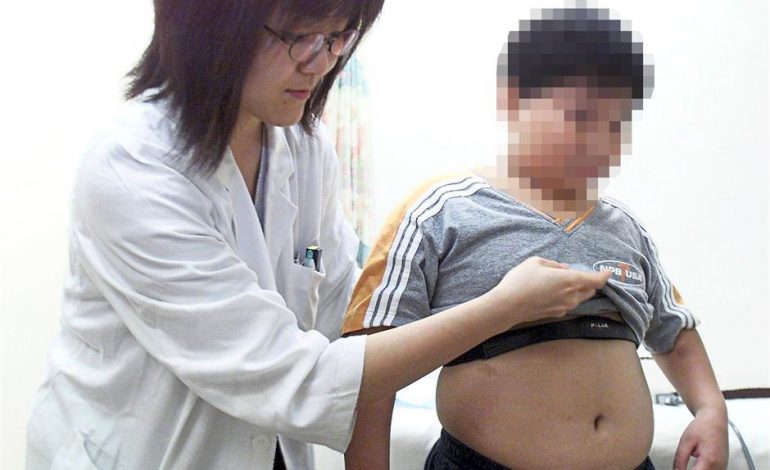 This little boy is only nine and already overweight. Worryingly, Malaysia is ranked as the most obese Asean nation. But, hopefully, we’re becoming more aware of health issues thanks to the increasing amount of digital health content we are accessing. Photo: Filepic
This little boy is only nine and already overweight. Worryingly, Malaysia is ranked as the most obese Asean nation. But, hopefully, we’re becoming more aware of health issues thanks to the increasing amount of digital health content we are accessing. Photo: Filepic
With the nation constantly being ranked as the most obese country in South-East Asia, Malaysians are increasingly taking health warnings seriously.
Many urbanites have turned to digital content, mobile health, and tech wearables to motivate themselves to have healthier lifestyles.
PurelyB co-founder and chief executive officer Jesrina Arshad said 2017 was an instrumental year when wellness started to become a focus in people’s lives.
“Wellness and health have started to become important, not just with individuals but also with corporations,” said the 34-year-old.
PurelyB, one of the leading health and wellness online community portals in Asia with 100,000 monthly users, encourages healthy eating and healthy living.
According to The Economist’s Intelligence Unit’s Tackling Obesity In Asean report, the Malaysian Adult Nutrition Study claimed that only one-third of the adult population had ever exercised and only 14% performed adequate levels of exercise.
“There is more awareness now with the Internet and digital content, and people have more access to this kind of information,” Jesrina said, adding that PurelyB was started to enable anyone to educate themselves and decide how they want to live a healthier life.
She said that most Malaysians are now smarter about the choices they make, and they seek long-term sustainable solutions to deal with their weight and health issues.
“The year 2018 will be when it (a healthy lifestyle) becomes more mainstream, where it will be more widespread because of the sheer word-of-mouth and community awareness as people see results,” she said.
Jesrina added that as more people spend more time on digital content, such as watching coaching videos on fitness or wellness, they would be able to follow the instructional videos at a time convenient to them.
“The biggest factor is time, especially in the urban community, either because of work or family commitments. They just don’t have the time and people are always going to find excuses (to not go to the gym),” she said.
Malaysian wellness and fitness YouTube personality Joanna Soh, who has one million subscribers on her YouTube channel producing workout and wellness videos, said people are really “hungry for this kind of content”.
“They want knowledge, they want information. Every time I share a video, there are comments coming in asking for a certain video on a certain topic.
“I realize that people nowadays when they want to know something, they will take the initiative to go out there and look for it,” added the 28-year-old.
Soh said instructional videos like hers create a sense of community where people seek support and share wellness or fitness tips with one another.
“What people want is a good workout session, there doesn’t have to be a physical trainer there,” she explained.
Wearable technologies are becoming core fitness gear among millennials, and Soh said they are great devices to track your fitness progress.
“You have a sense of accountability. If you are not hitting your goals, then it’s like you need to buck up, and the fitness tracker or app tells you that,” she added.
To Soh, fitness in Malaysia is starting to become more of an everyday lifestyle, where people want to embrace healthy living.
She also sees live streaming of digital content becoming big in 2018, as more people prefer instant engagement.
On her part, Jesrina sees the growth of mental health initiatives as having a strong presence in the coming year.
“Mental health is still quite taboo. With depression, people do not address these issues. If we don’t address this from a young age, then it will just get worse,” she cautioned.
According to Jesrina, activities like sound therapy sessions will be coming up as more people seek healing and stress-relief, while plant-based diets will gain traction as a way to cleanse, regenerate and reset one’s body.
“We will also see people going back to (consuming) their local roots like ayurvedic herbs,” she said, adding that it makes healthy living more affordable as the ingredients are locally-sourced.
Public health medicine specialist Dr Dhesi Baha Raja sees the health tech industry growing significantly in Malaysia.
“We are definitely going to see telemedicine coming up quite soon, whereby you can consult your doctor from home, get your blood results online, and request immunization for kids from home as well,” he said.
Telemedicine is the remote diagnosis and treatment of patients without the need for an in-person visit.
The 33-year-old Dr Dhesi is co-founder and chief scientist of a startup called Artificial Intelligence in Medical Epidemiology; he believes artificial intelligence (AI) innovations in healthcare will help government agencies track epidemics, while wearables such as Fitbit and the Apple Watch will bring about a new wave of health-related startups.
“These new startups will compile and gather data from these wearables to do proper analytics and give insights to their clients,” he said.
And if every Malaysian is vigilant and rigorous enough to adapt to this new technology, Dr Dhesi believes each and every one of us “will be the CEO of our own health”.









